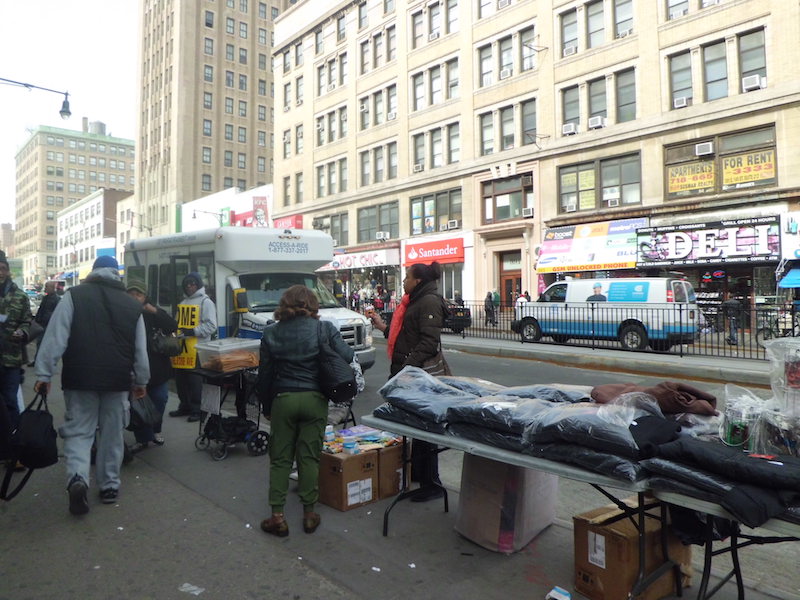Business is down 90 percent at Metro Optics since the Coronavirus hit, and only one of its five Bronx branches remains open. Still, owner John Bonizio has continued to pay all 56 employees, to avoid adding to yawning jobless numbers.
So Bonizio was heartened to learn of the $347 million in assistance to small businesses that was built into the federal stimulus package, known as the CARES Act, enacted in late March.
That was before he tried to apply for promised loans for firms like his.
Bonizio had reached out to his bank, where he has six accounts and a line of credit, to apply for a Paycheck Protection Program loan, which is largely forgivable for firms that retain employees. He fumes at what happened next: his loan officer sent him a form seeking contact information so they might “discuss his needs.”
“The banks are slowing the whole process down because they don’t know what they’re doing,” said a frustrated Bonizio. “I’m being treated like I’m on a bread line and they’re gonna help me and it’s really disgusting.”
This situation is one that many business owners find themselves in across the Bronx – and, indeed, the country. The Small Business Administration deputized banks to provide the low interest loans to hold firms over until the economy can recover. But banks have been overwhelmed by the deluge of applications, and reportedly only received guidelines for the loan program the night before it was to launch.
Bronx business leaders, working remotely, are waging a desperate battle to help business owners and save the borough’s once-thriving economy. Business and banking volunteers from across the borough are also stepping up to help cut through red tape.
Lisa Sorin, president of the Bronx Chamber of Commerce, said the organization is there to “hand hold” for small businesses who may be unfamiliar with the convoluted process of applying for federal loans.
The Chamber has partnered with six business improvement districts in the borough and hosted training sessions on loan packaging, and is conducting calls over Zoom and other video conference apps to get the owners ready to speak with their banks.
“People say ‘federal’ and everybody assumes that they have no access to it. Because there aren’t a lot of bodegas or hair salons or nail salons that know how to work the system,” said Sorin. “It’s very complicated.”
Third Avenue BID president Michael Brady said Tuesday that the paycheck protection loan process had not improved since its rollout, and said he thinks the federal government rushed the program launch and created false expectations.
He fears that many of the small businesses that have closed their doors won’t be reopening.
“I think that we’re at a point right now where we’re holding on by the last thread,” said Brady.
“Businesses, they don’t need loans, they need grants — they need a cash infusion. And the sooner our government and our philanthropic partners can get their heads around that, the more likely we will be to be on the way to recovery,” Brady added.
To provide more immediate help, the BID is directly raising money for its COVID-19 Bronx Business Relief Fund, to throw a lifeline to businesses with fewer than 20 employees that retain their workers.
They’ve also partnered with the Chamber and eight other BIDs to offer technical assistance services, where business owners can fill out an intake form to receive one-on-one loan packaging assistance from a business specialist.
Brady and Sorin will be part of a South Bronx Small Business Town Hall on Thursday at 2 p.m. The meeting, to be joined by City Council members Diana Ayala, Rafael Salamanca and Vanessa Gibson, plus other business leaders, will address the CARES Act and Families First Coronavirus Response Act, plus how state and federal law changes will impact businesses.
Those interested can register to watch via Zoom here.
Clarence Stanley, who has run the Small Business Development Center out of Lehman College since 2000, has been on the other side of the equation before, having previously managed the CitiBank branch on E149th Street and worked as a loan officer as well.
Stanley reached out to the SBA to get a list of the businesses in the area that have applied for the payment protection loans, then recruited volunteers to help them with the process. After the initial shell shock, he said, banks are just starting to get the loan process down.
Much like the retired healthcare workers who have returned to the front lines to assist an overwhelmed hospital system, Stanley’s volunteers include retired bankers and business executives, as well as the Women’s Business Resource Center and SoBRO, an economic development nonprofit in Mott Haven.
“I think if we give this time, it will work out. But the problem for small business owners is that their rent was due April 1…and their payrolls are due, and I understand that. They can’t be patient because they need the money. And that’s real,” said Stanley.
The Small Business Development Center at Lehman, which Stanley describes as a “consulting arm of the SBA,” is also helping businesses apply for Economic Injury Disaster Loans, which offer up to $10,000 in emergency grant money, and offering business counseling services through its website, nysbdc.org.
Stanley says he is concerned the restaurant industry and some retailers already threatened by Amazon will have the hardest time coming back. Still, other businesses see opportunity with the markets down, and have reached out to him to inquire about buying property so they won’t have to rent.
He holds out optimism that things can heat up once the economy is able to resume.
“There’s gonna be a pent up demand for certain things,” said Stanley. “I think we’re gonna pick up right where we left off. We just have to keep our folks in business somehow.”

